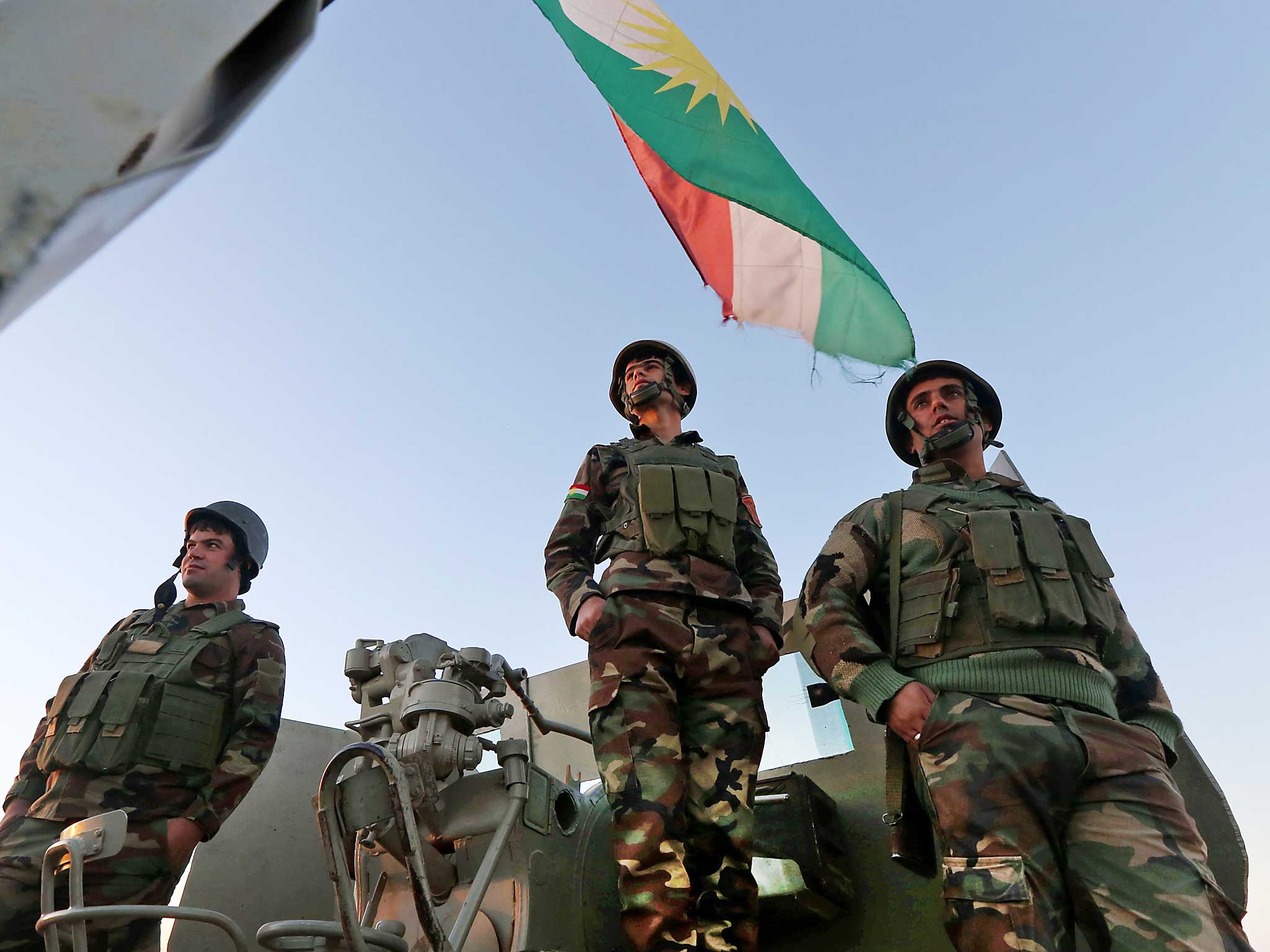Mosul offensive: France calls for international talks on Iraq’s future as Isis battle gets underway
Iraqi forces consolidate gains made in first two days of fighting as France calls for emergency meetings in Paris on how to defeat group once and for all

Isis has started using civilians as human shields as Iraqi forces progress on the second day of efforts to retake the Isis-controlled city of Mosul, residents inside have said, as France called for crisis meetings on how to protect the city’s population and on Iraq’s long-term future.
“This battle is crucial because it is the stronghold of Isis,” French Defence Minister Jean-Yves Le Drian told reporters on Tuesday.
The battle for Mosul is widely viewed as a litmus test for peace in the country. Freeing it would end Isis’s land-holding ambitions in Iraq, but the complex and competing interests of coalition Sunni fighters, Shiite militias and Kurdish forces could lead to further unrest in the Sunni-majority city.
Foreign ministers from several Western and Middle Eastern countries including the US, UK and Saudi Arabia will meet at talks co-hosted by Iraq in Paris on Thursday to discuss how to bring peace to Mosul, French Foreign Minister Jean-Marc Ayrault said.
“We cannot wait. What happens after Mosul is liberated from Isis? We need an administration that establishes long-term stability,” he said.
There has been heavy fighting in the first 36 hours of the offensive, including several Isis suicide and car bombs as well as landmines put in the advancing troops’ path, but in some places allied Iraqi forces are now only seven miles away from the outskirts of the city.
The massive air and ground offensive to retake Mosul was announced on Monday by Iraqi Prime Minister Haider al-Abadi. The complex operation is the biggest military undertaking in Iraq since American forces left the country in 2011. It is likely to trigger a humanitarian crisis as citizens either get caught in the crossfire or try to flee fighting, several aid agencies have warned.
The International Committee of the Red Cross (ICRC) appealed to all sides on Tuesday – including Isis – to spare civilian lives.

“Our ambition ... is to establish dialogue with [Isis] because it is holding the city of Mosul and we absolutely need to have this dialogue kickstarted. So all I can say now is we will continue to try and try harder,” said Robert Mardini, ICRC’s regional director.
Isis has used civilians as human shields when retreating from other key battles in Syria and Iraq in recent months. Residents in Mosul say the tactic has been repeated there, with the population channelled into strategic areas by the use of concrete blast walls which effectively seal off entire neighbourhoods. Buildings, roads and bridges are reported to be heavily boobytrapped.
It is also feared that the Iraqi army – which has asked civilians to remain in their homes – may not open the promised humanitarian corridors out of the city in an attempt to stop Isis fighters as well as civilians from leaving. A Save the Children spokesperson in Irbil on Monday warned of ensuing “bloodshed” unless citizens were allowed to leave.
Thursday’s meeting will discuss how to address the massive shortfall in aid available for the up to 200,000 people who are expected to be displaced as fighting reaches more densely populated areas, and how to take the fight against Isis to what will be its last stronghold if and when Mosul falls: the de facto capital Raqqa, in northern Syria.
“For Raqqa, a similar method will be needed to Mosul. It will take time and political will,” Mr Ayrault said.
“We can’t let Isis reconstitute itself or strengthen to create an even more dangerous hub. Ignoring Raqqa would be a serious mistake.”
Join our commenting forum
Join thought-provoking conversations, follow other Independent readers and see their replies
Comments
Bookmark popover
Removed from bookmarks